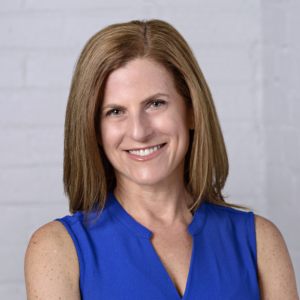Clinical trial practitioners straining to maintain an elusive work/life balance are probably only chasing unicorns and rainbows unless they can reframe their goals and outlook, leading experts advise.
“I dislike the premise and concept of ‘work/life’ balance,” says psychologist Dr. Risa Weisberg, who recently joined BehaVR as chief clinical officer and is a professor of psychiatry at the Boston University School of Medicine. She calls it a losing construct because it “gives the impression you are looking for a perfect, static balance.”
“Looking at it that way, you are doomed to failure” because you’ll almost always feel guilty about either not spending enough time on your family and personal life or enough time on your professional tasks, Weisberg adds.
Burnout is prevalent in the clinical trial workplace, as evidenced by a September 2021 study by Tufts, which found more than half (55%) of members of clinical research teams involved in the development of new drugs reported feeling more professionally burned out since the COVID-19 pandemic forced most operations in a remote direction. Nearly as many (42%) were concerned about “deteriorated connections” with colleagues.
“I’m a little surprised at how high that burnout number is,” said Mary Jo Lamberti, PhD, a research assistant professor for Tufts, associate director of the institution’s Center for the Study of Drug Development, and a lead author of the new study. “The clinical trial industry needs to address this, so it doesn’t get worse.”
In addition to reframing the goal, clinical trial thought leaders and veterans like Weisberg suggest the solution fundamentally begins with finding work you believe in.
“The idea of work/life balance suggests that work is separate from your life” Weisberg states. “But you spend a third of your waking hours working, so of course it’s part of life!”
Sergio Armani, vice president and head of Large Pharma, CRP, Early Phase, and IBC Development at Advarra, also believes successful balance begins with finding work you love. “I love protecting human subjects in clinical trials using skills I’m good at,” he notes; but without that kind of basic job satisfactions, other work/like balance tools may not have much positive impact, he adds.
“That’s my biggest piece of advice—find what you love doing, whether it’s in an industry, a company, or a task,” says Armani, who also serves as Treasurer for ACRP’s Association Board of Trustees.
“I don’t like the term work/life balance,” agrees Jennifer McLeland, MSW, MA, CCRC, ACRP-PM, RPSGT, director of the Accredited Sleep Technologist Education Program and manager of the Division of Clinical Research at the Washington University School of Medicine. “It almost has a negative connotation,” she asserts. “It invites guilt and makes you think everyone else is doing better than you.”
McLeland prefers to flip the concept and look at it as work/life alignment. “It’s a better image,” she notes, and acknowledges success ultimately “requires shifting and adjusting to priorities in any given week.” For example, she says, if your child gets sick, “that goes to top of your list over work” for a time.
McLeland advocates taking a step back. She gives thorough, tailored self-assessments as part of her webinar training. The goal is to “see where you are now with balance and where you want to be.” Always remember, “stop comparing yourself to other people,” she adds. “Balance/alignment is different for everyone, and no one size fits all.”
Burnout is Everywhere!
Meanwhile, burnout isn’t limited to the clinical trial industry workforce, suggesting a more endemic problem, experts note.
According to Gallup’s March 2020 report on Employee Burnout: Causes and Cures, 76% of employees experience burnout on the job at least sometimes, and 28% say they are burned out “very often” or “always” at work.
Lack of community, an unrealistic workload, and perceived lack of control are some of the strongest drivers for burnout among white collar workers across industries, according to an article in the Harvard Business Review.
“It’s not about finding a balanced state, where you can equally hold work in one hand and the rest of your life in the other,” reminds Weisberg. “Balance here is a verb, not a noun. It’s something you have to continually do. Thinking of it like a perfect state to achieve can make you feel like it’s somehow your fault if you aren’t attaining it.”
Instead, connect work with a greater purpose as part of your life. “Think of work as a part of your total life,” Weisberg urges. “Those of us who work in clinical research hold a certain privilege of getting to spend our working hours doing something that likely has meaning to us. You probably began this with a passion for science and helping patients. Try now to reconnect to that sense of purpose.”
Author: Michael Causey



